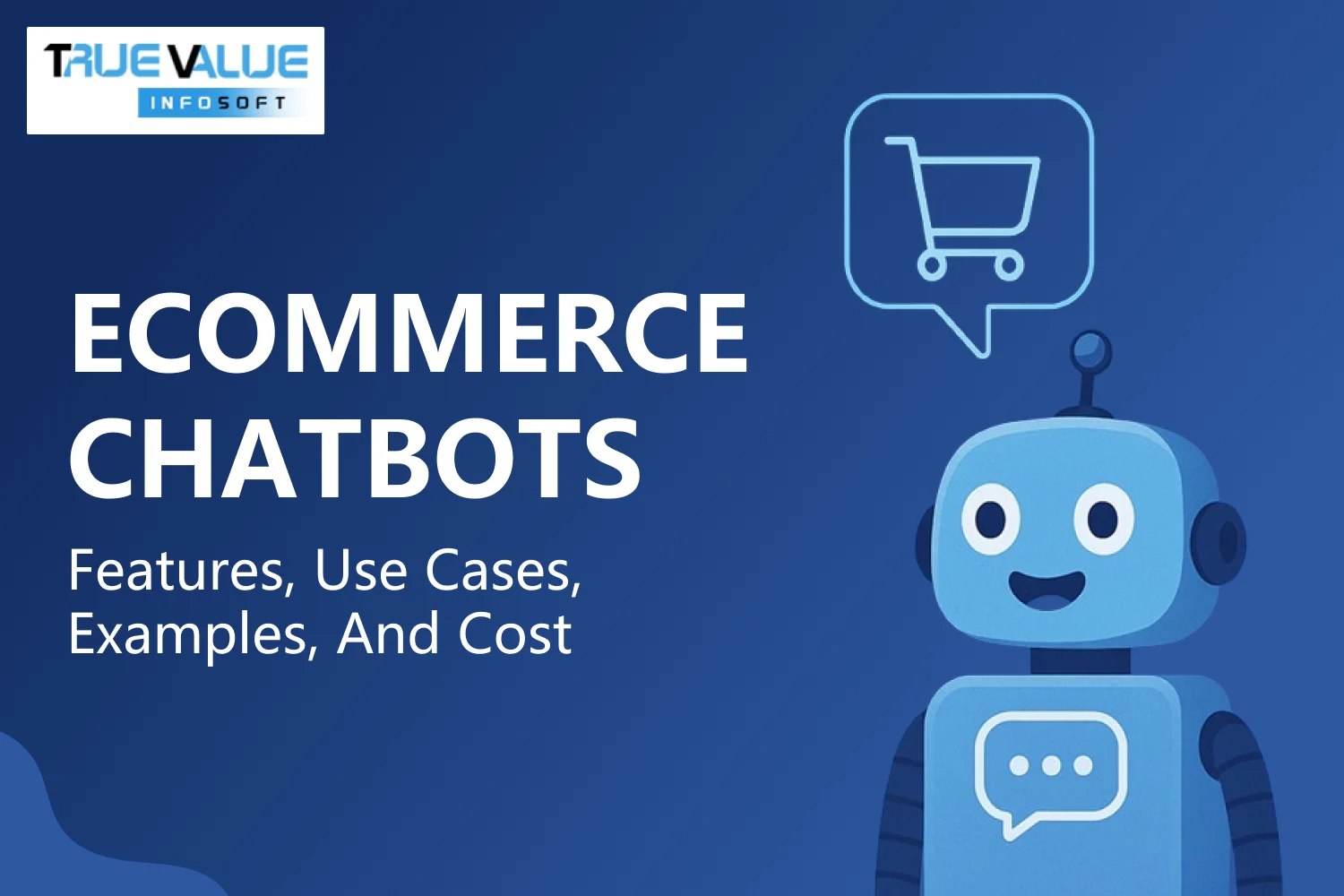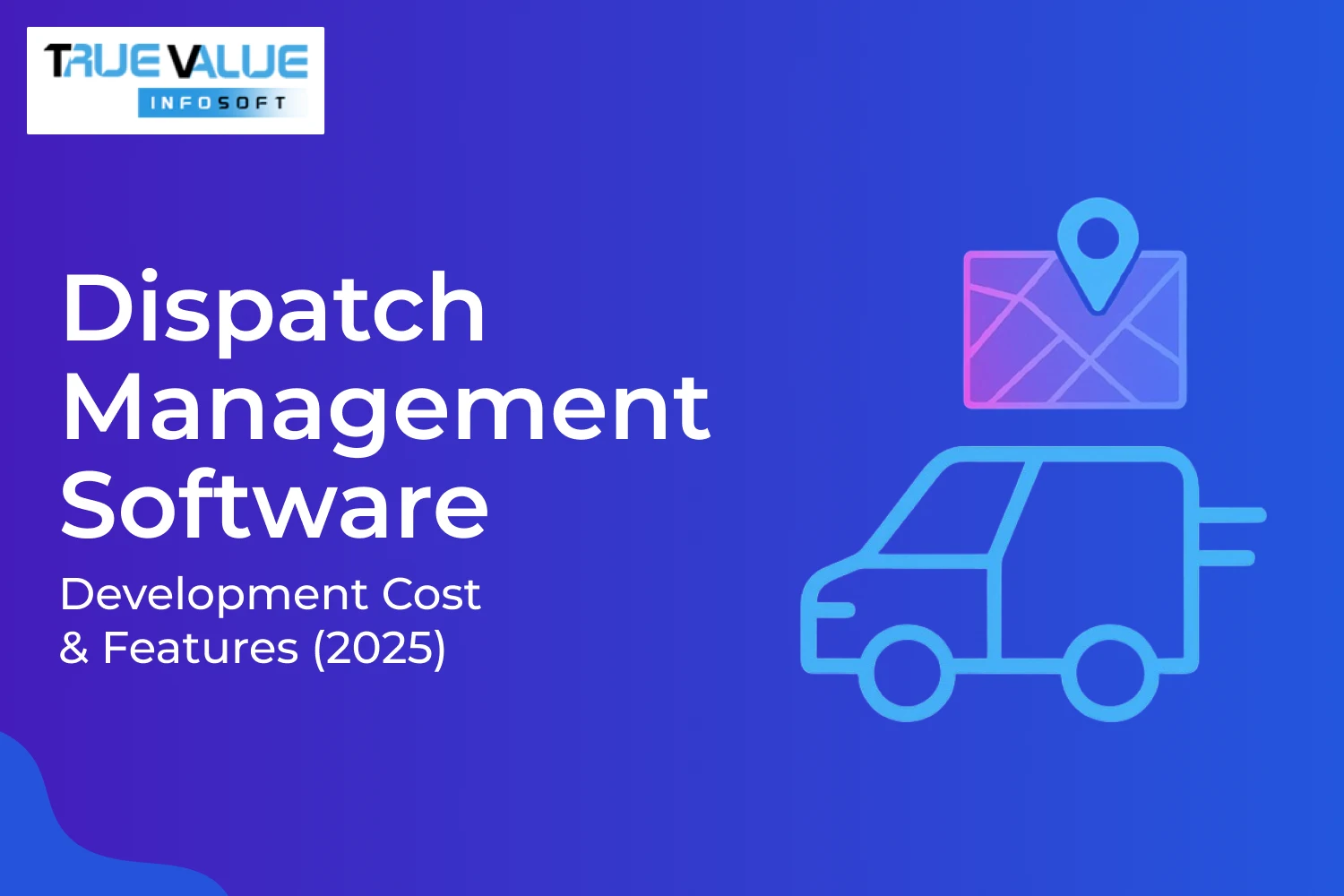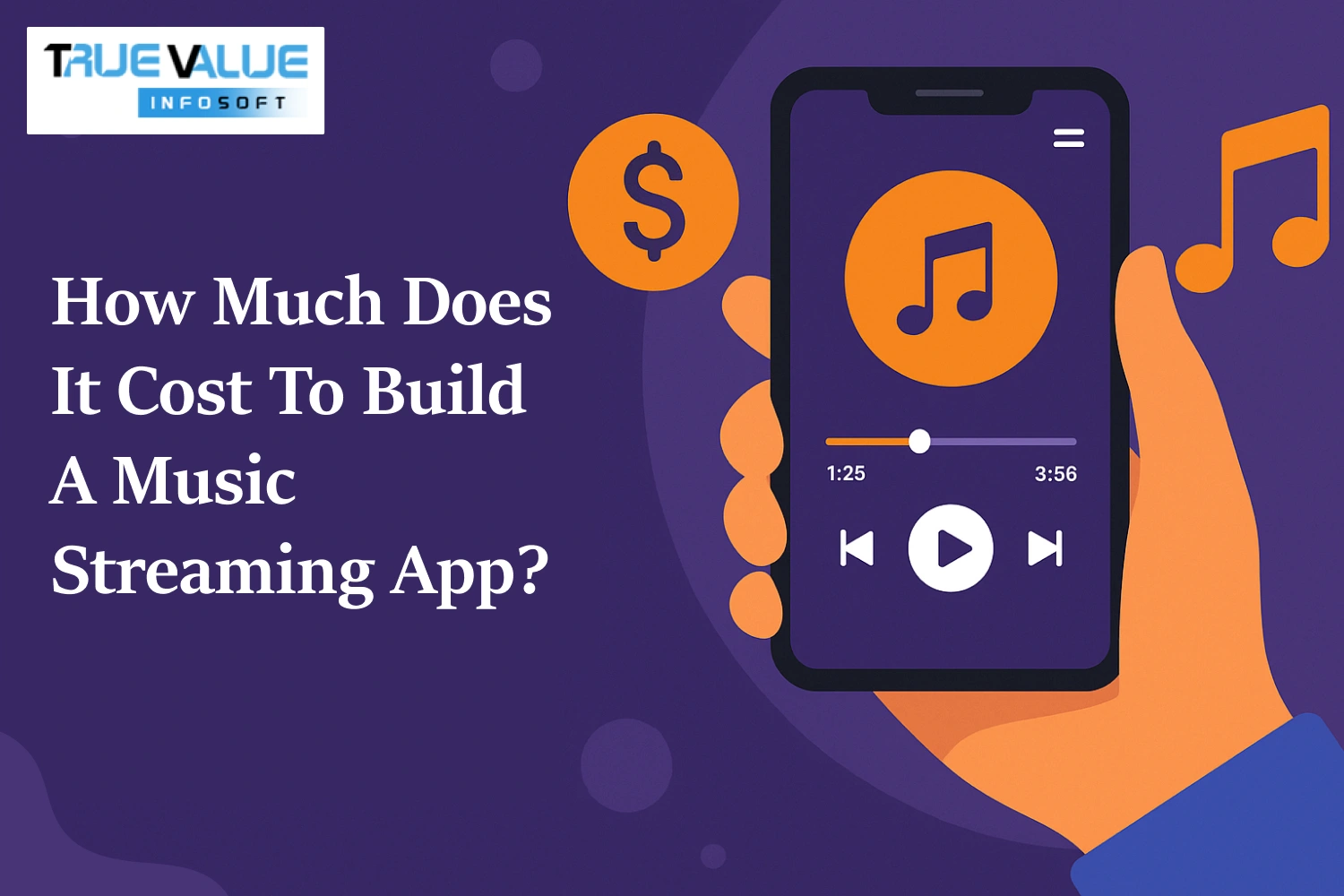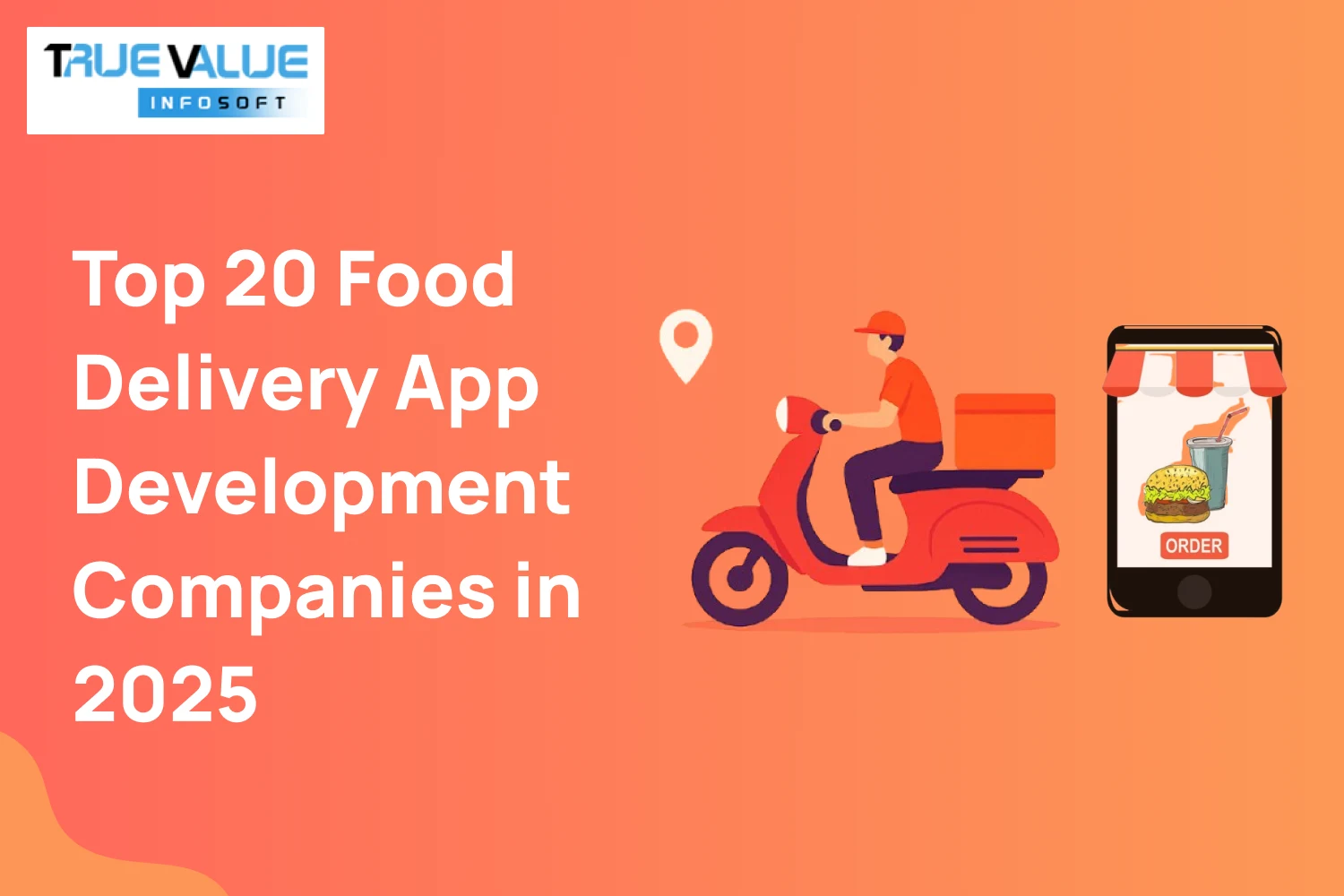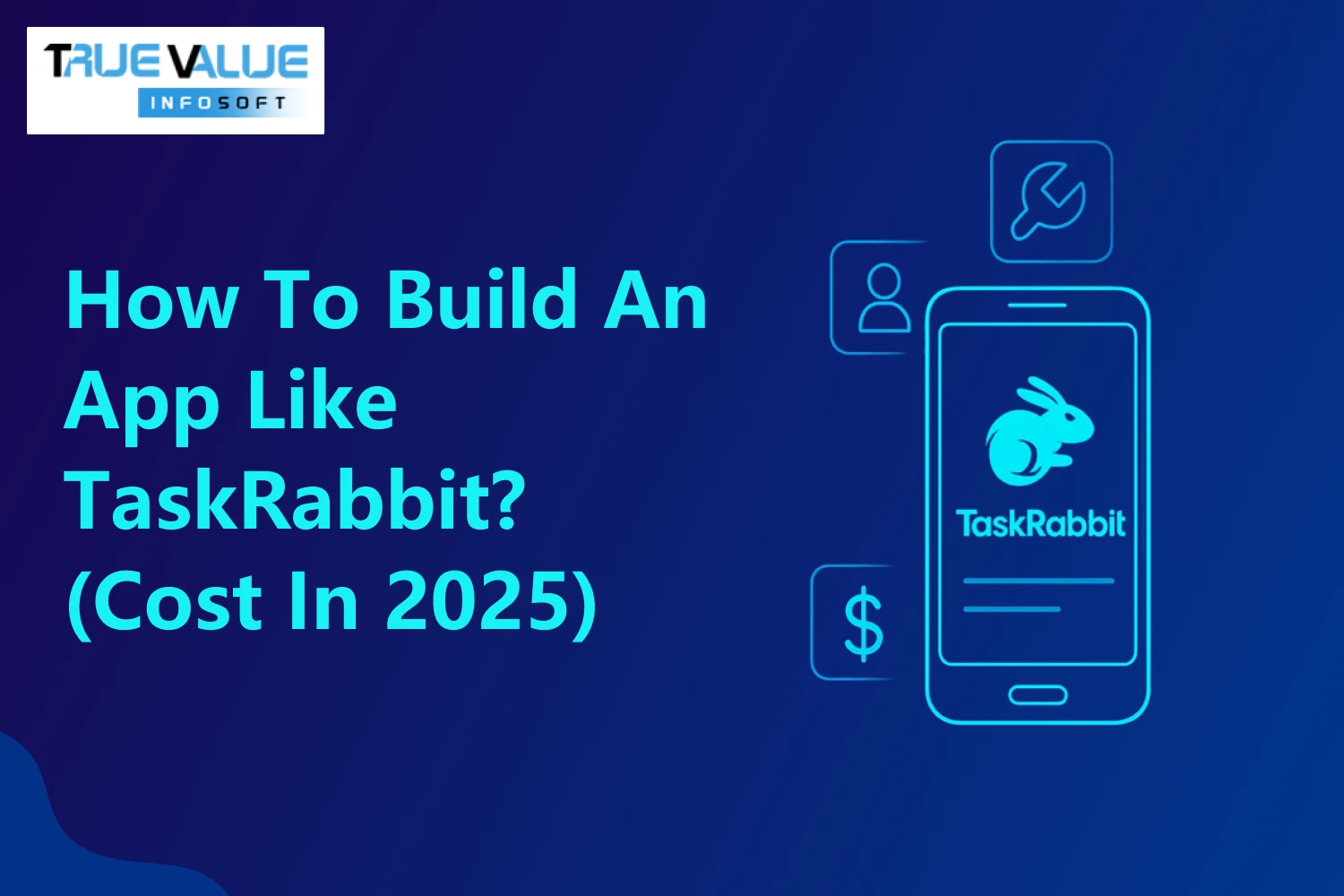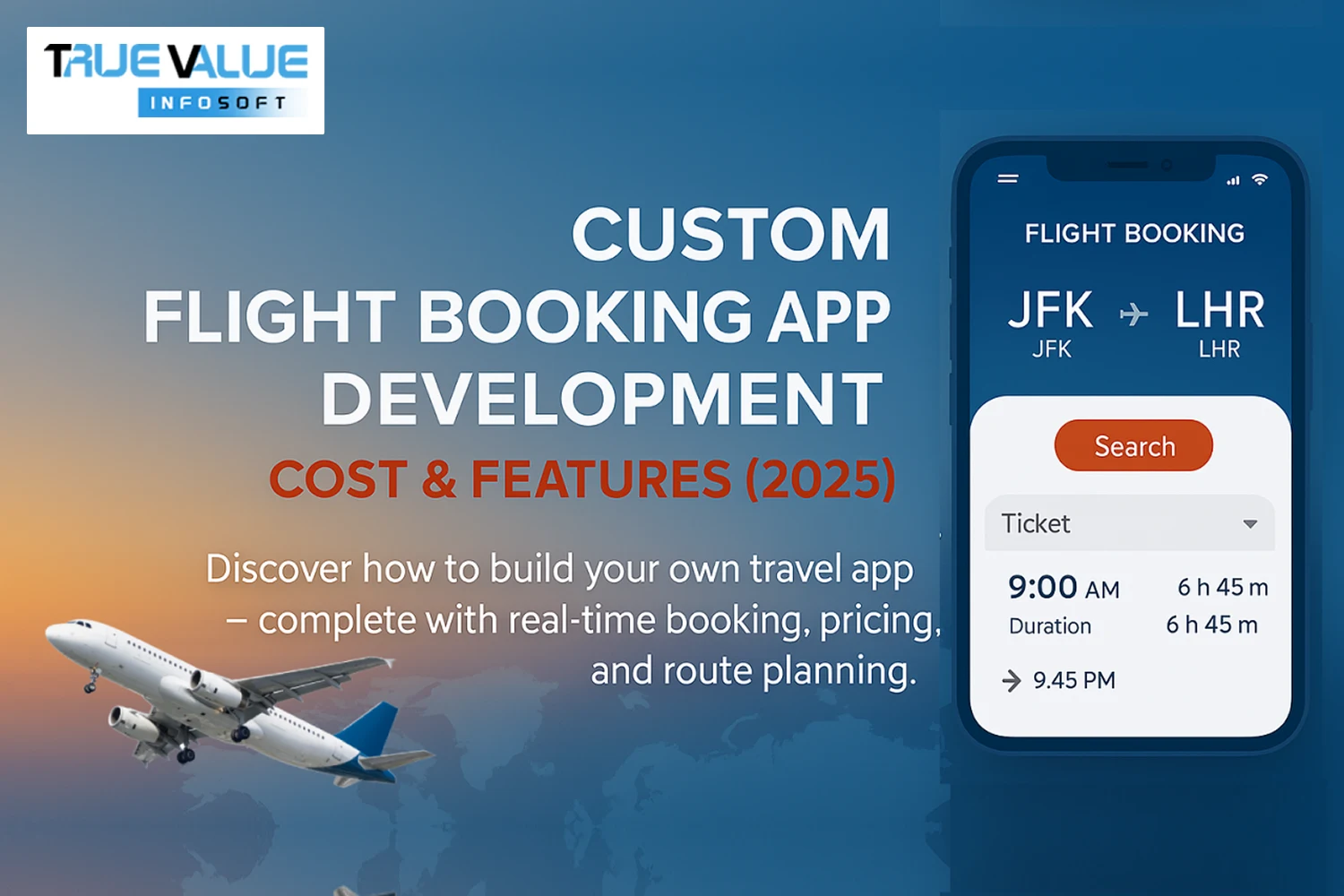Introduction
Are you looking to revolutionize your online store with smarter customer interactions? You’re not alone. In today’s fast-paced digital marketplace, eCommerce chatbots are quickly becoming an essential tool for enhancing customer engagement, streamlining operations, and driving sales. These intelligent assistants are not only available 24/7 but are also capable of answering queries, recommending products, processing orders, and much more — all in real time.
At True Value Infosoft, the best app development company in India, we specialize in building AI-powered chatbots tailored for eCommerce platforms. Our solutions are designed to increase conversions, reduce cart abandonment, and deliver personalized shopping experiences to your customers.
What is an ECommerce Chatbot?
An eCommerce chatbot is an AI-powered virtual assistant integrated into online retail websites, mobile apps, or messaging platforms. These chatbots simulate human conversation and guide customers through various stages of the buyer’s journey — from product discovery to checkout and even post-purchase support.
Key Functions:
- Answer FAQs instantly
- Offer product recommendations
- Help with returns and exchanges
- Provide order status and tracking
- Assist in cart recovery
eCommerce chatbots can be rule-based (scripted) or powered by advanced technologies like Natural Language Processing (NLP) and Machine Learning, enabling them to understand user intent and respond more naturally over time.
How Do ECommerce Chatbots Work?
eCommerce chatbots function by using AI algorithms to analyze user queries, interpret the context, and deliver meaningful responses. Here's how:
- User Input – A customer types a question like “Where is my order?”
- Natural Language Understanding (NLU) – The chatbot breaks down the input to detect intent (e.g., tracking).
- Backend Integration – The bot fetches the necessary data from your CRM, order management system, or database.
- Response Generation – Based on the data, the chatbot formulates a response and presents it.
Most eCommerce bots are connected to systems like Shopify, Magento, WooCommerce, Salesforce, etc., and can communicate across platforms including WhatsApp, Messenger, and websites.
Key Features of an ECommerce Chatbot
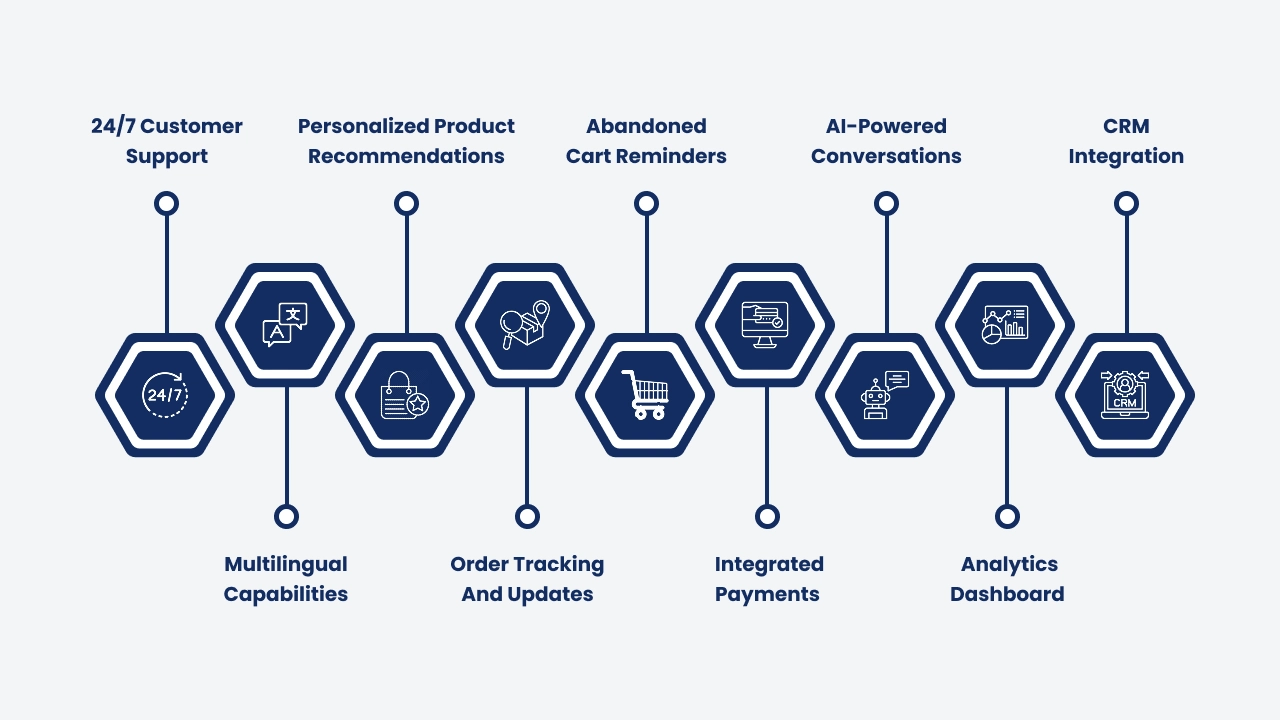
Let’s explore the must-have features:
1. 24/7 Customer Support
Bots never sleep — they’re available around the clock, solving customer issues instantly.
2. Multilingual Capabilities
Serve a global audience by enabling language support based on customer preference.
3. Personalized Product Recommendations
Use AI and data analysis to suggest relevant products based on browsing history or purchase behavior.
4. Order Tracking and Updates
Customers can check order status without calling or emailing support.
5. Abandoned Cart Reminders
Remind users about items left in their cart and offer discounts to convert them.
6. Integrated Payments
Allow customers to complete purchases within the chat interface.
7. AI-Powered Conversations
Improve user experience with human-like conversations that evolve with machine learning.
8. Analytics Dashboard
Track interactions, conversion rates, and customer satisfaction metrics.
9. CRM Integration
Sync chatbot data with your customer relationship management system for deeper insights.
Benefits of ECommerce Chatbots for Businesses
1. Increased Sales
Bots guide users to the right products, shortening the buying cycle and boosting conversions.
2. Lower Operational Costs
You don’t need a large team to handle customer queries — bots do the heavy lifting.
3. Improved Customer Engagement
Chatbots create instant and interactive experiences, which improves loyalty and satisfaction.
4. Faster Response Times
No more waiting in queues — responses are delivered instantly.
5. Lead Generation
Chatbots collect valuable customer data like emails and preferences during conversations.
Use Cases of ECommerce Chatbots
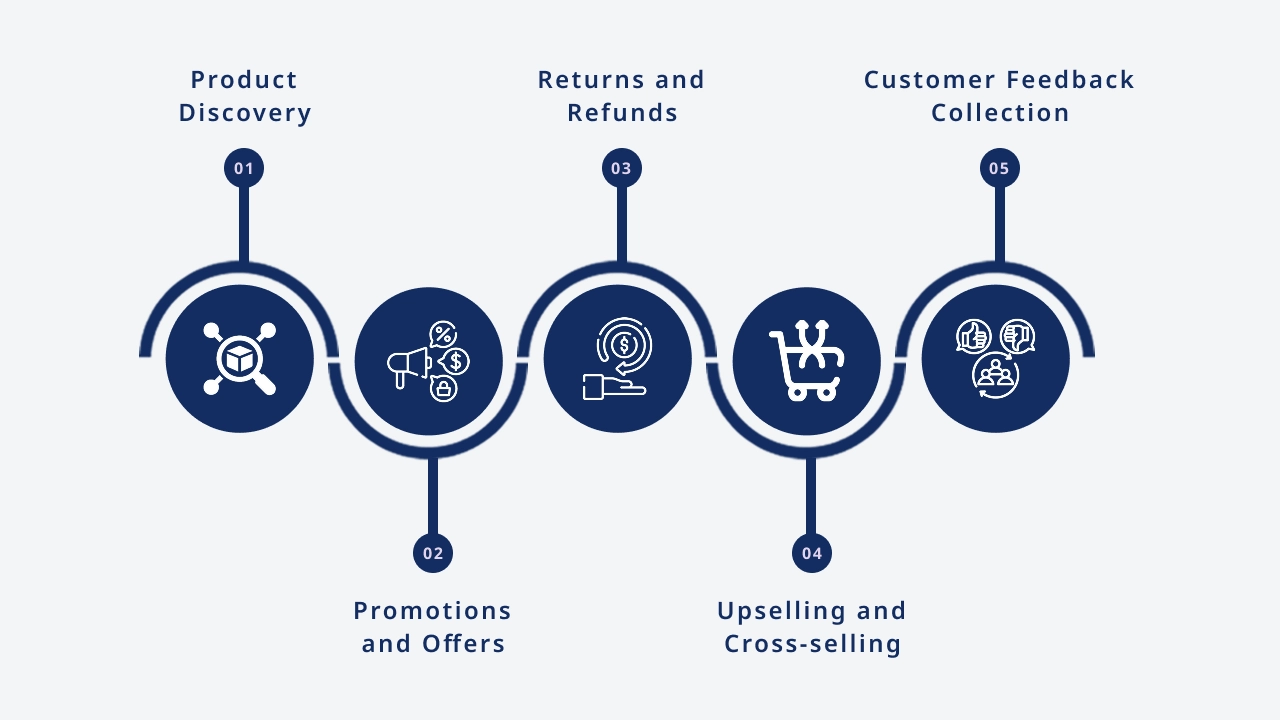
1. Product Discovery
Customers tell the chatbot what they’re looking for, and it provides personalized recommendations.
2. Promotions and Offers
Chatbots notify users of sales, promo codes, or special events in real time.
3. Returns and Refunds
They automate complex return policies and walk customers through refund processes.
4. Upselling and Cross-selling
Suggest complementary products based on the user’s current selections.
5. Customer Feedback Collection
Bots can ask customers about their experience after purchase and submit reviews.
Industry Examples of ECommerce Chatbots
1. H&M
Uses a chatbot on Kik to help users build outfits and make purchase decisions.
2. Sephora
Their bot books in-store appointments, shares beauty tips, and product suggestions.
3. eBay
Its ShopBot on Messenger helps users find the best deals by analyzing user preferences.
4. Domino’s Pizza
Let customers order via Messenger, simply by chatting with the bot.
5. Nike
Launched a campaign where users could design their own sneakers via chatbot interaction.
eCommerce Chatbot Tools and Platforms
Some popular platforms to build eCommerce chatbots include:
- Dialogflow (Google)
- Microsoft Bot Framework
- Chatfuel
- Tars
- ManyChat
- Rasa
- IBM Watson Assistant
These platforms offer prebuilt templates, integrations with shopping platforms, and analytics dashboards.
Cost to Build an ECommerce Chatbot in 2025
Basic Chatbot: $1,000 – $3,000
- For small businesses with limited features (FAQs, order status, etc.)
Intermediate Chatbot: $3,000 – $10,000
- Includes integrations, NLP, product recommendations.
Advanced AI Chatbot: $10,000 – $30,000+
- Full customization, multilingual support, machine learning, analytics.
Cost Breakdown:
- Design: 10–15%
- Development: 40–50%
- Testing: 10%
- Integrations: 20%
- Maintenance & Support: 10%
Factors Affecting Development Cost
- Complexity of Features
- Third-Party Integrations
- AI/ML Capabilities
- Multilingual Support
- Platform Compatibility (Web, Mobile, Messenger)
- Development Time
- Team Location and Experience
Challenges in eCommerce Chatbot Development
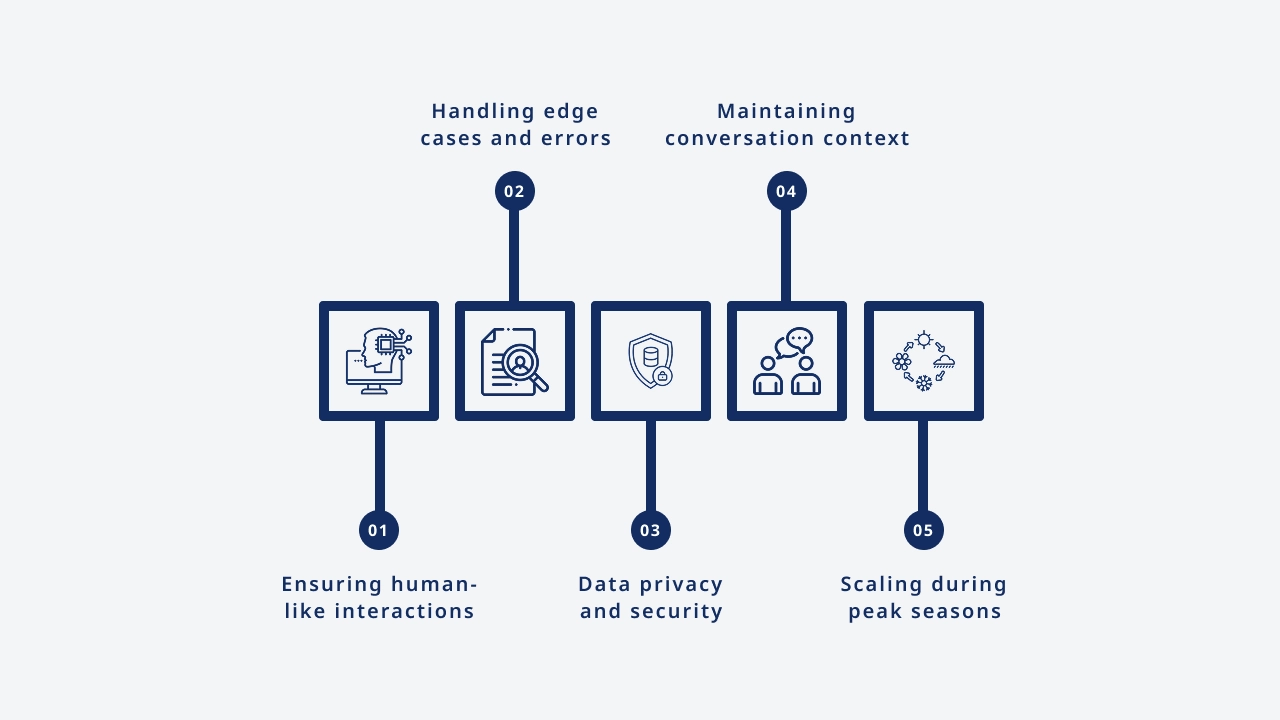
- Ensuring human-like interactions
- Handling edge cases and errors
- Data privacy and security
- Maintaining conversation context
- Scaling during peak seasons
Future of AI Chatbots in ECommerce
By 2030, most customer interactions in retail will be AI-driven. Chatbots will:
- Understand emotion and tone
- Offer hyper-personalization
- Replace search bars entirely
- Work across AR/VR platforms
- Integrate voice assistants like Alexa and Siri
AI-driven personalization will make shopping experiences predictive, not just reactive.
Why Choose True Value Infosoft for ECommerce Chatbot Development?
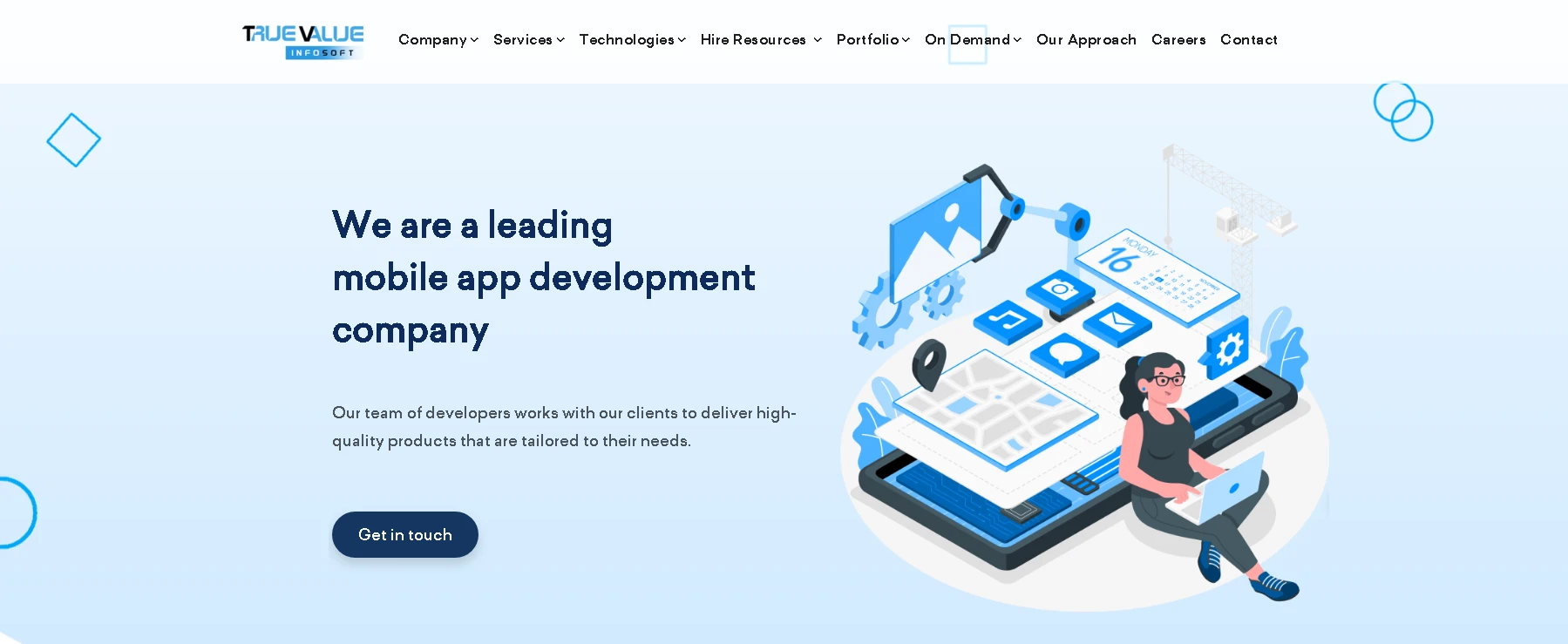
At True Value Infosoft, the best app development company in India, we specialize in building high-performance AI chatbots tailored for the eCommerce domain. Here’s why you should partner with us:
- Custom Solutions – We tailor each chatbot to your business model.
- Expert Team – Our developers are experienced in AI, NLP, and chatbot frameworks.
- Omnichannel Support – Deploy your bot across Messenger, WhatsApp, and web seamlessly.
- End-to-End Development – From consultation to deployment and maintenance.
- Data Privacy – We ensure GDPR and data compliance for all chatbot systems.
- Analytics-Driven – Monitor user engagement and improve performance with detailed reports.
Conclusion
ECommerce chatbots are not just a trend — they are the future of online retail. From handling thousands of customer queries at once to guiding users toward personalized purchases, they are redefining how businesses interact with customers.
Whether you run a small online store or a large-scale eCommerce brand, integrating an intelligent chatbot can dramatically improve customer experience, increase sales, and cut down operational costs.
Partnering with a trusted tech expert like True Value Infosoft, the best app development company in India, ensures your chatbot is developed with the latest technologies, robust integrations, and user-first design.
Now is the perfect time to invest in eCommerce automation. Start small, scale wisely, and let AI do the heavy lifting for your customer experience strategy.
FAQs
They’re used to assist customers with product search, order tracking, customer support, and checkout in online shopping platforms.
Depending on complexity, it ranges from $1,000 for basic bots to $30,000+ for advanced AI-powered solutions.
Yes, by offering personalized recommendations, abandoned cart reminders, and 24/7 support, chatbots can significantly boost sales.
You can deploy it on websites, mobile apps, WhatsApp, Facebook Messenger, Instagram, and more.
We offer custom-built AI chatbot solutions, experienced developers, robust integrations, and a proven track record in eCommerce automation.
